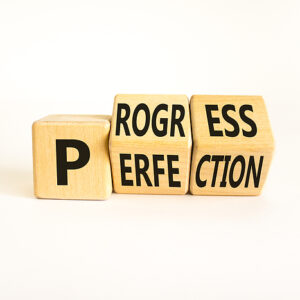As we strive to create a more perfect union, it seems that with no sense of irony, more people seem to be raising the bar on acceptable imperfection. For example, among those who are resisting a COVID-19 vaccine, one of the common refrains is, “Why take it? We were promised that the vaccine would protect us, yet now even those who are fully vaccinated and boosted are not immune from the variants that continue to pop up.” In other words, unless and until the vaccines are 100 percent effective under all circumstances, this large segment of our population would favor the perfect over the good. Yet no medical intervention has ever achieved 100 percent effectiveness, nor will it ever.
Then we have those who continue to deny the outcome of the 2020 presidential election. Here again, the only acceptable standard seems to be absolute perfection. Admittedly, most elections seem to have some irregularities, whether intended or not. This was the case in 2020, too, but there is no great need to be alarmed. The critical issue would be if any of these irregularities, even those produced by outright fraud, would have been widespread enough to change the actual election outcome. After all, that’s the purpose of an election—determining who won or lost.
To date, with over 60 court cases nationwide, and several recounts and forensic audits that have been conducted, no credible evidence has been presented that would meet this standard. Continuing to pose questions whether the process in any particular state was less than perfect only raises the standard beyond where it’s always been, while also sowing unwarranted doubts about whether any future election outcome can be considered legitimate unless the underlying process can be proven to be 100 percent perfect.
That brings us to the brave new world of “cancel culture.” With itchy fingers poised on their smartphones, millions of people are ever ready to dig up an errant post or picture of a celebrity or politician from long ago. By creating an online “gotcha” moment, it’s not too difficult to paint the perpetrator as a bad person worthy of social scorn, maybe even banishment. In other words, anyone who falls below a 100 percent perfection standard may be fair game for having a reputation stained or livelihood threatened.
My point here isn’t that we should lower our collective standards of excellence as a way to diffuse polarization across the ideological spectrum. Rather, we must recognize that in much of life, the 100 percent test is not the one that we should be applying.
Perfection may be our highest aspiration, but moving toward it doesn’t mean rejecting its application where perfection will never be possible or desirable. As the voices grow louder, let’s pause to reflect on whether the perfection pretext is an unnecessary source for the rising wave of resistance and anger that’s now all too apparent.

